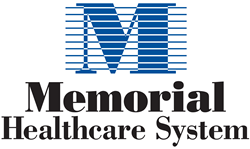
Memorial Healthcare System is one of the largest public healthcare systems in the U.S. and a national leader in quality care and patient, physician, and employee satisfaction.
HOLLYWOOD, Fla. (PRWEB)
September 24, 2021
South Florida, like other areas of the country, has experienced serious surges brought on by the COVID-19 pandemic, creating a high demand for healthcare services and challenges across hospitals. Medical teams cared for a high level of COVID-19 cases coupled with steady patient volumes in other clinical areas, such as cardiac and cancer.
Memorial Healthcare System has been on the forefront of the pandemic, managing up to 738 COVID-19 positive patients at the peak of the latest surge, while also investing $16 million in personal protection supplies, and supplementing its front line with close to 1,000 contract nurses to address the constant needs brought on by the pandemic this past year.
Such level of response had significant impact on Memorial’s finances, yet the Board of Commissioners for the South Broward Hospital District, which oversees all actions for Memorial, voted Wednesday to still move forward with the adoption of the lowest millage rate ever recorded for the district. This latest millage reduction to 0.1144 marks the 11th year in a row that the Board has voted to lower the overall millage rate, resulting in the lowest rate in the history of the South Broward Hospital District. Commissioners supported their decision based on Memorial’s strong financial position and having the ability to provide that reduction to residents in south Broward County.
The 0.1144 millage rate represents a 4.59 percent decrease from last year’s rate of 0.1199. The resulting gross tax revenues are estimated to reach $7.7 million. After accounting for early payment discounts and a certain percentage of uncollectible taxes, the anticipated tax payments this year of $7.6 million will provide the District enough revenue to cover its governmental obligations, which include paying Broward County’s Medicaid Match program and community redevelopment agencies in several municipalities in south Broward County, as well as tax collector commissions and property appraiser fees.
The newly adopted millage rate will leave no net tax revenue to fund uncompensated care, the District will use operating income to cover all uncompensated care costs for the entire Memorial Healthcare System, including its six hospitals and its eight Memorial Primary Care clinics. In fiscal year 2022 uncompensated care is projected to exceed $967 million.
On a separate and unanimous vote, the Board of Commissioners also approved an increase in the Memorial minimum wage, from $13 an hour to $15 an hour – an investment of over $8 million in Memorial’s workforce. This is the second minimum wage increase in the last six months.
This historic reduction of this millage rate coupled with the increase in minimum wage also comes at a time when Memorial Healthcare System continues to offer a comprehensive array of services, such as cardiac and stroke care, Level 1 trauma services, maternity, kidney transplant and many others. Memorial’s quality and safety has been recognized nationally by Leapfrog Group, a national nonprofit organization that collects and transparently reports hospital performance. Memorial Cardiac and Vascular Institute continues to receive outstanding ratings from the Society of Thoracic Surgeons, placing Memorial in the top 1% of U.S. cardiovascular centers for 2017. Memorial also remains one of only a handful of public hospitals in the nation to achieve AA, Aa3 financial ratings by Standard and Poor’s and Moody’s, respectively.
Memorial Healthcare System is one of the largest public healthcare systems in the country and is a national leader in quality care and patient satisfaction. Its facilities include Memorial Regional Hospital, Memorial Regional Hospital South, Joe DiMaggio Children’s Hospital, Memorial Hospital West, Memorial Hospital Miramar, Memorial Hospital Pembroke and Memorial Manor nursing home. The system received the following recognitions: Modern Healthcare magazine’s “Best Place to Work in Healthcare,” Florida Trend’s “Florida’s Best Companies to Work For,” and Becker’s Hospital Review’s “150 Great Places to Work in Healthcare.”
For more information, visit mhs.net.
Share article on social media or email:

